Corgi Puppies 101: Your Ultimate Guide To Welcoming A Fluffy Bundle Of Joy Into Your Home

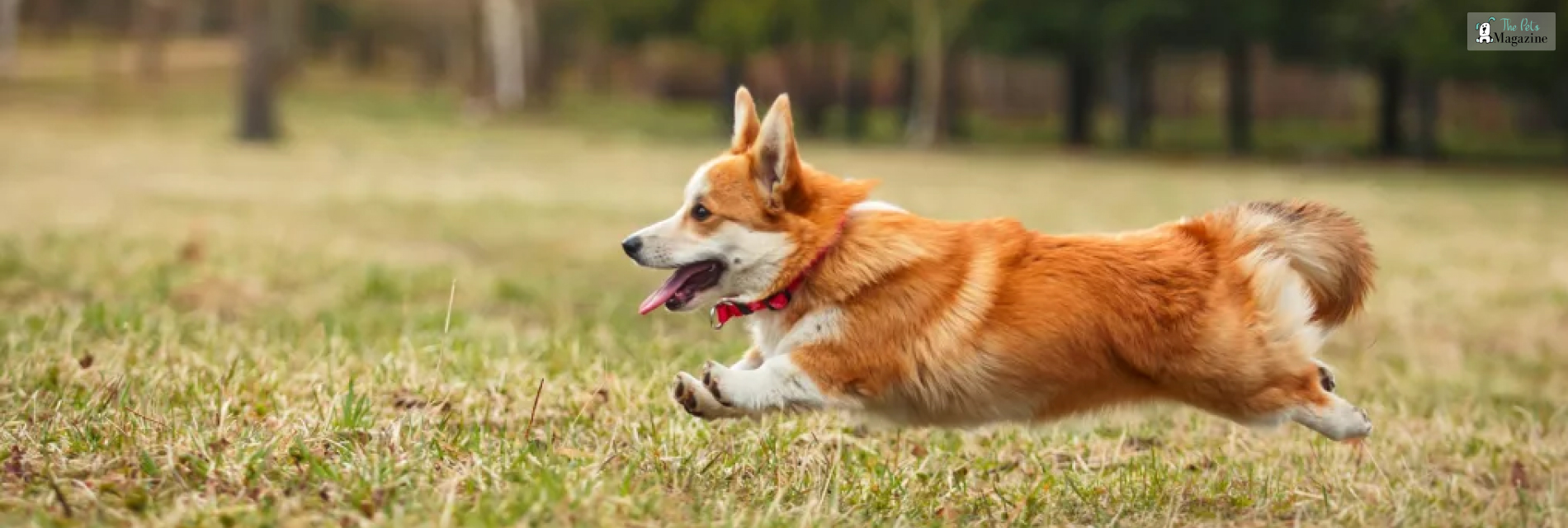
If you’ve ever come across a Corgi puppy, you know just how irresistibly adorable they are. With their short legs, fluffy coats, and expressive eyes, it’s no wonder that Corgis have become one of the most popular dog breeds in recent years. But before you decide to bring home and start searching corgi puppies for sale, there are a few things that you need to know to ensure that your furbaby leads a healthy and happy life.
In this ultimate guide, we’ll take you through everything you need to know about cute Corgi puppies, from their history and origin to their care, training, and health concerns. So, get ready to dive into the wonderful world of Corgi puppies!
History and Origin of Corgis
Corgis have a rich history that dates back to 3,000 years. These adorable pups were originally bred in Wales as herding dogs. ‘’The word “Corgi” actually means “dwarf dog” in Welsh. It is believed that they were brought to Wales from Central Europe by Aboriginal tribes.
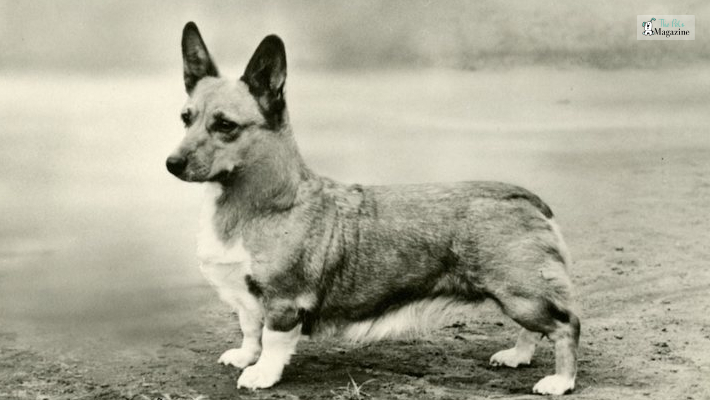
The most popular breeds of Corgis are the Pembroke Welsh Corgi and the Cardigan Welsh Corgi. The Cardigans and Pembrokes both herd the cattle and guard the barnyard. They also both worked with farmers. However, the Cardigans came from the rocky terrain of Cardiganshire in southwest Wales and are descended from the Teckel family of dogs. On the other hand, Pembrokes were from the flatter terrain of Pembrokeshire in southern Wales and most probably descended from spitz-type dogs.
Corgis were highly valued by the farmers for their intelligence, agility, and ability to herd cattle. They would nip at the heels of cows to keep them in line, making them indispensable on farms. But Corgis were mainly all-purpose farm dogs. Their job was not only to guard and protect the cattle but also to prevent the livestock from straying and being stolen by thieves and to ensure that the cattle were back home in time for milking. Corgis also performed other tasks such as hunting rodents and guarding the family home.
Corgis were extremely popular and in the 1850s could be seen in almost every Welsh farm. But their numbers started decreasing during the early 1900s. In 1925, Corgis were registered as a native English dog breed by the Kennel Club (England), and in the year 1934, Pembrokeshire Corgi was recognized as a separate breed.
Why choose a Corgi puppy as a pet?
So, what makes Corgis such great pets? Well, there are plenty of reasons to choose a Corgi puppy as your new furry friend. First and foremost, Corgis have a loving and affectionate nature. They are known to be excellent family dogs and get along well with children and other pets.
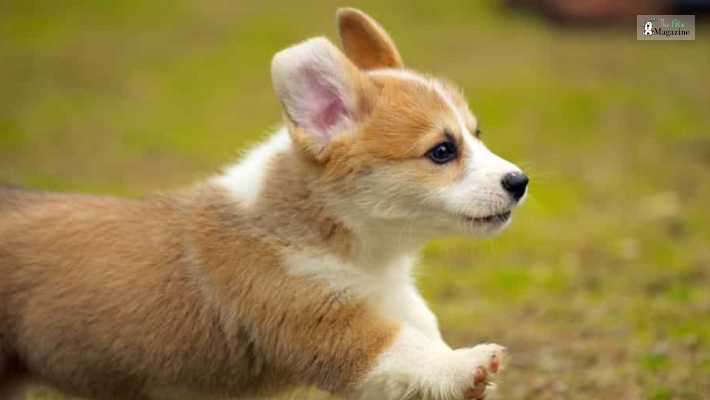
Corgis are also highly intelligent and eager to please, which makes them relatively easy to train. Additionally, their small size makes them suitable for both apartments and larger homes. Despite their short legs, Corgis are surprisingly active and enjoy regular exercise. They are always up for a game of fetch or a long walk in the park.
Corgi puppy size and appearance
Corgi puppies are incredibly cute, but they don’t stay small forever. As they grow, Corgis typically reach a height of around 10 to 12 inches at the shoulder and weigh between 25 to 30 pounds. Their bodies are long and low to the ground, with sturdy legs and a deep chest.
There are some subtle differences between the two types of corgis – The main differences are their size, coat, and tail. Pembrokes are smaller, have a fox-like tail, and a shorter coat. Cardigans are bigger, often have a tail, and have a thicker, longer coat.
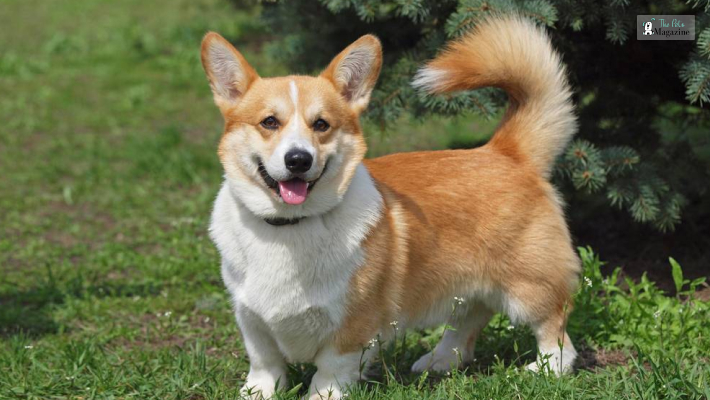
Corgis have a double coat that consists of a short, weather-resistant outer coat and a thick, insulating undercoat. Their coats come in a variety of colors, including red, sable, fawn, and black and tan. One of the most distinctive features of Corgis is their adorable, fox-like face, complete with perky ears and bright, intelligent eyes.
Corgi Breed characteristics and personality traits
Corgis are known for their charming and unique personalities. Despite their small size, they have big personalities and are bursting with energy. Corgis are highly active and require regular exercise to keep them happy and healthy. They love to play and goof around. So be prepared for your puppy to chase, pounce, and run circles around you.
So invest in plenty of interactive dog toys to keep their playful side satisfied. They thrive on mental stimulation and love to learn new tricks and commands.
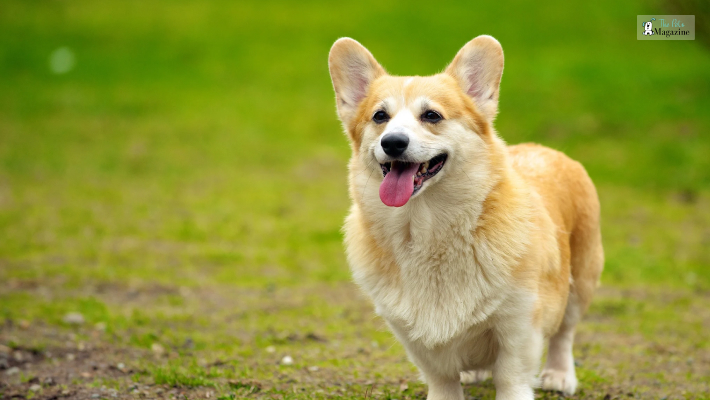
Corgs are smart, curious dogs. They love exploring, investigating new sights and sounds, and learning new things. Give your puppy opportunities to interact with new people, experiences, and environments in a positive, rewarding way. Puzzle toys and training sessions are also great for exercising their mind. While playful and clever, corgi puppies can be stubborn. So they need consistent training from a young age to be rid of the stubborn streak.
Corgis are also incredibly loyal and make excellent watchdogs. They will bark to alert you of any potential danger, but they are not aggressive by nature. Corgis are friendly and sociable dogs that enjoy the company of both humans and other pets. They love to be part of the family and are happiest when they are included in all activities.
Training, Socialising, and Exercising a Corgi Puppy
Training and socializing your Corgi puppy is an essential part of their development. Corgis are intelligent dogs that are eager to please, which makes them relatively easy to train. Ideally, you should start training them from the time you bring them home. Start with basic commands like sit, stay, and come, and gradually move on to more advanced tricks and obedience training.
Positive reinforcement techniques, such as treats, praise, and rewards, work best with Corgis. Consistency and patience are key when it comes to training your Corgi puppy. Housebreaking is another important aspect of training. Start early and establish a routine for your puppy to follow. Take them outside frequently and reward them when they are eliminated in the appropriate spot.
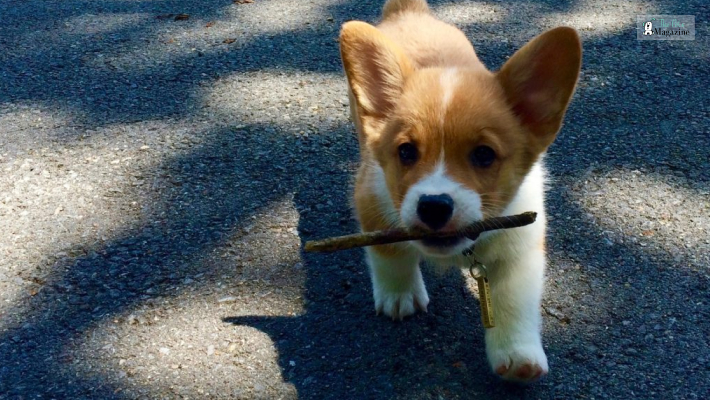
Socializing your Corgi puppy
Socialization is crucial for Corgi puppies to develop into well-rounded and confident adult dogs. Expose your Corgi puppy to a variety of people, animals, and environments from a young age. Take them for walks in different neighborhoods, introduce them to other dogs and pets, and invite friends and family members to interact with them.
Positive experiences during the socialization period will help your Corgi puppy grow up to be friendly and outgoing. It’s important to remember that Corgis can be a bit reserved around strangers, so early socialization is essential to prevent any potential behavioral issues.
Here are some ways in which you can socialize your Corgi puppy –
- Gently and gradually expose your puppy to new sights, sounds, places and people in a controlled setting. Keep initial interactions positive and rewarding.
- Invite friends over to play with and handle your puppy.
- Take your puppy on walks in your neighborhood to meet neighbors and their dogs. Let them interact if both dogs seem friendly.
- Enroll your puppy in a puppy kindergarten class to learn basic skills and socialize with other dogs and people.
- Expose your puppy to experiences like car rides, vacuums, and doorbells in a gradual, positive way. Give treats and praise to help them make positive associations.
Health concerns and common issues in Corgi puppies
Like all dog breeds, Corgis are prone to certain health concerns and common issues. One of the most common health issues in Corgis is obesity. Due to their love for food, Corgis can easily become overweight if not properly managed. It’s important to monitor their diet and exercise regularly to prevent weight gain.
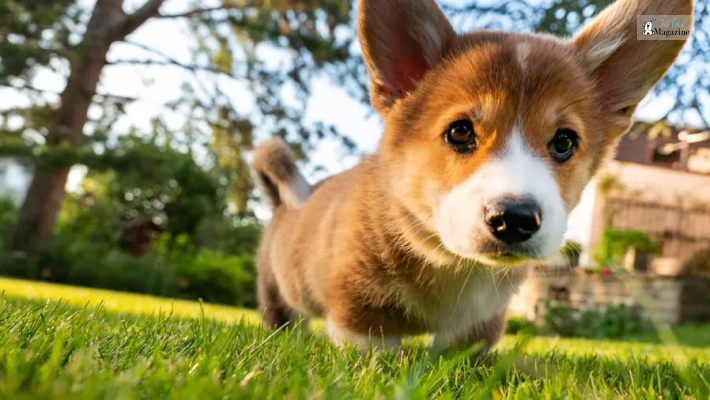
Corgis are also prone to certain hereditary conditions, such as hip dysplasia, degenerative myelopathy, and progressive retinal atrophy. These diseases have been discussed in detail below:
Joint problems
Corgis are prone to joint issues like hip and elbow dysplasia due to their stumpy legs and long backs. Watch for signs like limping, difficulty standing up or lying down, loss of muscle mass in the legs, or legs that seem painful to the touch. Early diagnosis and treatment is key to managing dysplasia.
Eye issues
Corgis can be prone to progressive retinal atrophy (PRA), glaucoma, and cataracts. PRA causes night blindness and eventual vision loss. Glaucoma leads to high pressure in the eye, causing pain. Cataracts form cloudy spots on the lens or cornea leading to vision loss. Take your pup for regular vet eye exams, especially as a puppy. Early treatment like medication or surgery can help prevent permanent vision loss.
Obesity
It’s easy for corgis to become overweight, which puts extra stress on their joints and spine. Carefully measure out your puppy’s food according to your vet’s recommendations and avoid giving too many treats. Make sure your corgi get plenty of exercise to keep them at a healthy weight. An overweight corgi puppy is prone to more health problems as an adult.
Spinal issues
Corgis can suffer from intervertebral disk disease (IVDD) where the disks between the vertebrae in the spine bulge or rupture, causing pain, nerve damage, and even paralysis. Watch for signs like neck pain, limb weakness, reluctance to move, or loss of bladder/bowel control. IVDD requires emergency vet care and surgery to prevent permanent damage. With treatment, many dogs recover fully.
By familiarizing yourself with these common health issues in corgi puppies, you’ll know the signs to watch for. Early detection and treatment is the best way to keep your corgi pup happy and healthy for life. Be sure to take your puppy in for frequent vet checkups, especially in those critical early months. It’s also important to keep up with vaccinations, flea and tick prevention, and regular grooming to keep your Corgi puppy healthy and happy.
Finding a reputable Corgi Breeder
By now you probably want to know how much are corgi puppies. The price can be anywhere between $400 to $4,000. But it generally depends on the reputation of the breeder, and pedigree of the puppy.
When it comes to finding mini corgi puppies for sale, it’s essential to do your research and find a reputable breeder or rescue organization. A reputable breeder will prioritize the health and well-being of their dogs and provide proper care and socialization from a young age.
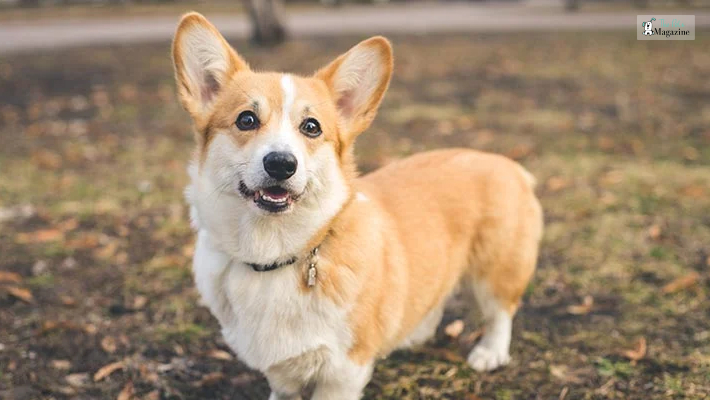
They will also be knowledgeable about the breed and provide you with all the necessary information and documentation.
Rescue organizations are also a great option if you are looking for corgi puppies for adoption. They often have Corgis of all ages available for adoption as well as corgi mix puppies. As a result, they can help you find the perfect match for your family. You also have to pay considerably less fee.
How to prepare before bringing a Corgi puppy home
Bringing adorable corgi puppies home is an exciting time but requires some preparation. Before your Corgi puppy arrives, make sure you have all the necessary supplies, such as a crate, food and water bowls, toys, and a comfortable bed. You should also get an ID Tag, collar and leash, and grooming supplies like a slicker brush, nail clippers, shampoo, toothpaste, and toothbrushes made for dogs.
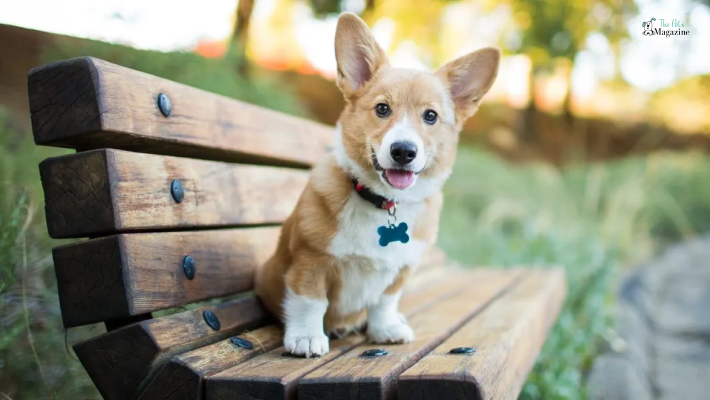
You should also ask your vet about the best food for corgi puppies based on their age, size, and activity level. Corgi puppies require more calories than average puppies to support their quick growth, so you’ll want a formula specifically for large-breed puppies. So look for a puppy food with meat like chicken, fish, or beef as the first ingredient.
With these key supplies in place before your puppy comes home, you’ll be fully ready to welcome your Corgi puppy and get them on the right track with feeding, house training, and play.
It’s important to puppy-proof your home by removing any potential hazards and ensuring that electrical cords, toxic plants, and small objects are out of reach. When your Corgi puppy arrives, make sure to give them a warm and loving welcome. Introduce them to their new surroundings gradually and provide plenty of love, attention, and reassurance.
Bottom Line
They may be small in size but corgis have huge personalities and boundless energy. With their charming personalities and irresistible cuteness, Corgi puppies are sure to bring endless joy and love to your life. Remember to provide proper care, training, and socialization to ensure that your Corgi puppy grows up to be a well-behaved and happy adult.
Once you get past the puppy stage, corgis can make wonderful lifelong friends and adventure buddies. Embrace and enjoy the puppy stage as long as possible and get ready for a lifetime of adventures with your fluffy bundle of joy!






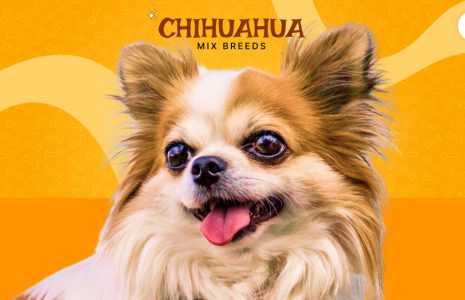
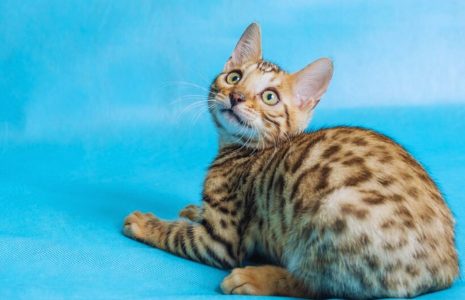
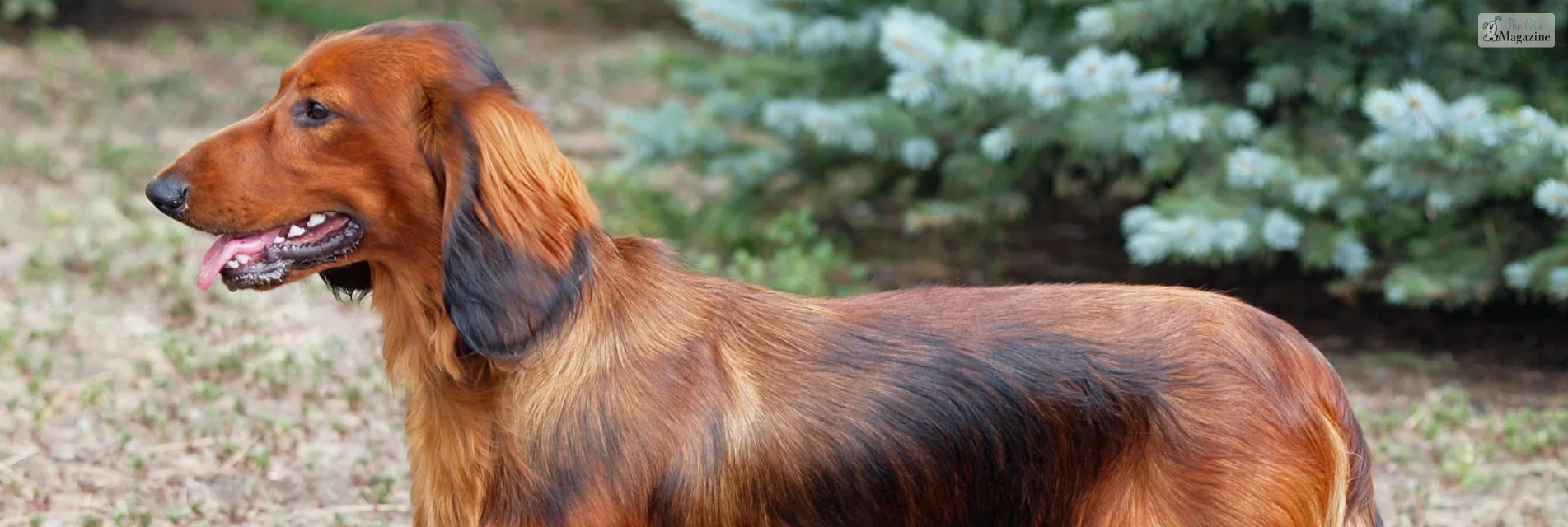
Leave A Comment